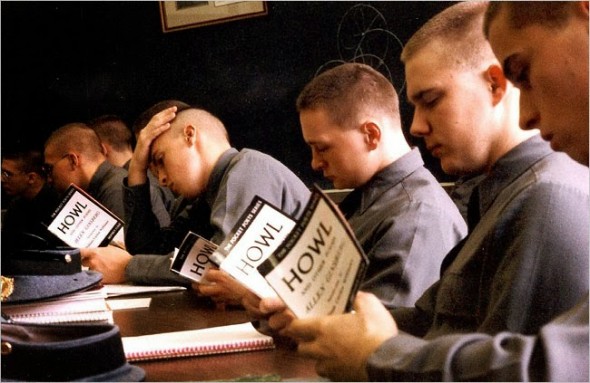Written by: Emily Fritcke
Edited by: Javaria Tareen
 On February 26, 2014, Dr. James Stavridis, Dean of The Fletcher School of Law and Diplomacy at Tufts University, retired U.S. Navy Admiral, and former Supreme Allied Commander of the NATO Alliance in global operations from 2009 to 2013, shared his perspective on resolving global issues with an audience at Tempe Center for the Arts. In his lecture entitled, “Learning, Literature, and Leadership,” he stated, “Walls don’t work. We must create bridges.” He went on to profess that he believes that it is through literature, reading, and studying that we create the ultimate bridge. I was inspired and encouraged by Dr. Stavridis’ comments, because I too believe that exposure to great works of fiction, expressive poetry, and thoughtful biographies provides us insight to world issues, international perspectives, and human strengths and challenges.
On February 26, 2014, Dr. James Stavridis, Dean of The Fletcher School of Law and Diplomacy at Tufts University, retired U.S. Navy Admiral, and former Supreme Allied Commander of the NATO Alliance in global operations from 2009 to 2013, shared his perspective on resolving global issues with an audience at Tempe Center for the Arts. In his lecture entitled, “Learning, Literature, and Leadership,” he stated, “Walls don’t work. We must create bridges.” He went on to profess that he believes that it is through literature, reading, and studying that we create the ultimate bridge. I was inspired and encouraged by Dr. Stavridis’ comments, because I too believe that exposure to great works of fiction, expressive poetry, and thoughtful biographies provides us insight to world issues, international perspectives, and human strengths and challenges.
As a notable advocate for the study of the humanities, Dr. Stavidris, referenced an article, “Don’t Say Goodbye to Intellectual Diversity,” written Lt. Alexander P. Smith to outline why the humanities are critical to the development of a successful military commander:
“Engineering, math, and science tend to draw certain types of people. Humanities draw different types. The first are inward-focused, rule-bound, risk-averse, and bureaucratic. The outward-focused, improvisational risk-takers who hate bureaucracy and embrace Verantwortungsfreudigkeit—joy in making decisions and taking responsibility—are usually drawn to the humanities.”
Dr. Stavridis acknowledges that there are certain qualities that are essential for a dynamic military leader and claims: “An education in the humanities, especially history and literature, is the best preparation for thinking militarily.”
Violence, regional instability, ruthless dictators, and religious radicalism are unfortunately a part of the fabric of the 21st century. These factors are the greatest deterrents to solving the most persistent global issues. We can possess effective solutions for disease prevention, sustainable agricultural development, safe-water treatment, and economic challenges, but, without the ability to connect, the implementation of these resolutions is unachievable. To effectively build bridges to create an atmosphere for successful resolution of critical worldwide issues, it is essential to have an advanced sense of global awareness and understand the foundations of certain beliefs and actions of specific cultures. According to Dr. Stavridis, this is best accomplished through reading great literature, fluency in languages, genuine interaction with the people of foreign nations, and drawing on the contributions of all disciplines. As Admiral Stavridis stated in his closing comments, “No one of us is smarter than all of us connected.”


Emily,
Wonderful post. I love this approach to leadership. I think people don’t generally think that literature and the military would go hand-in-hand so well.